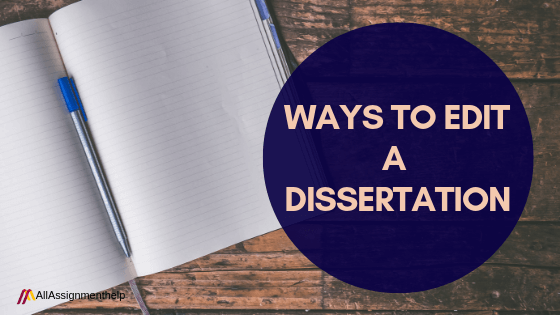There are several ways to edit and improve a dissertation to give the services. There are two types of editing: line corrections and big-picture edits. Both kinds of editing focus on big picture elements such as structure and content, rather than line corrections, which are small but important mistakes. Spelling errors, in particular, will not be a big selling point for professors looking for proofreading services. However, even if the editing process is done correctly, a dissertation with spelling mistakes will not impress your professor.
Breaking down your dissertation into smaller segments
It is important to understand how the structure of your dissertation fits together. It reflects the investigation, research, and conclusion of the whole research process. While this structure is important to understand, you may wish to cut it down if it has no use. A table of contents that is too long will detract from its usefulness. It is also important to remember that you may not be able to change your dissertation if it is too complex, but breaking it down into smaller segments is the most effective way to edit and improve it to make it more accurate.
Following a similar style throughout
APA, MLA, and Chicago citation styles are all widely used in writing academic papers. The requirements vary from program to program, so be sure to check the requirements for your degree or ask your supervisor. You can also use Scribbr Citation Generator to help you format citations and create a reference list. While there are citation style requirements in the dissertation itself, you should also focus on the information within it.
Reading aloud
When you’re writing your essay, dissertation, or other piece of writing, you may find it helpful to read it out loud as you go. You might do this while you’re writing it, or after you’ve finished it. This is especially useful when you’re writing your first draft or final submission. It’s also an excellent way to catch any mistakes you may have overlooked.
Speaking your dissertation out loud allows you to hear what your readers are hearing. This helps you catch any missed words, incorrect sentence structure, or double-typed words. It’ll also help you notice typos and punctuation errors that you may have missed. You’ll know if the paper sounds awkward when read aloud and which sentences need revision.
Getting constructive feedback
Getting constructive feedback from your peers is an essential part of your PhD experience. It can make the process of editing and revising a dissertation much easier and provide you with valuable insights. But how can you get constructive feedback from peers? Here are some tips. Don’t take criticism personally. Constructive feedback comes from people who care about your work and don’t want to hurt your feelings. They are looking for ways to improve your work, not just to make you feel bad.
Feedback is a friend. When a professor or peer says that your writing lacks clarity, the next step is to isolate those instances and clarify. Then, ask the person giving the feedback to elaborate. Then, you can respond to their criticism. It’s important to remember that you will not always agree with your professor, so don’t take criticism personally. Feedback is a valuable tool in your research process and can deepen your understanding of your field.
Author Bio:
This is Aryan, I am a professional SEO Expert & Write for us technology blog and submit a guest post on different platforms- Technoohub provides a good opportunity for content writers to submit guest posts on our website. We frequently highlight and tend to showcase guests.

